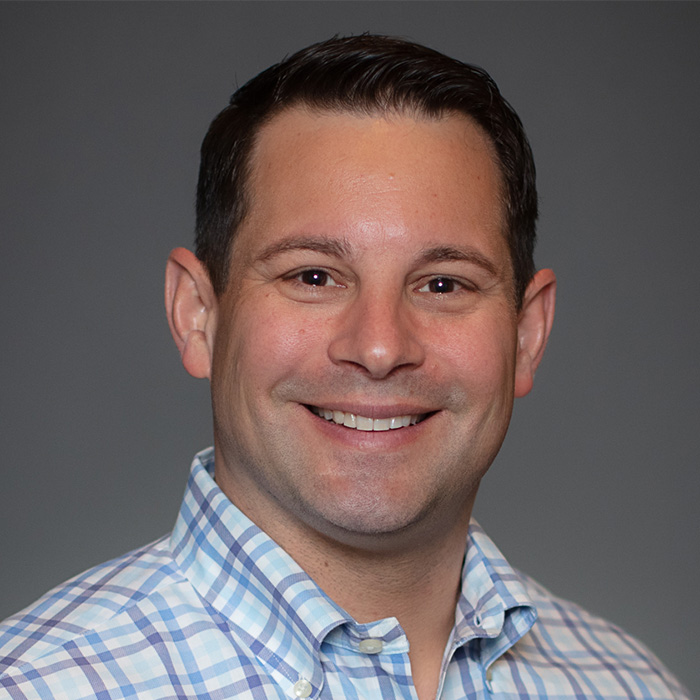Learner Profile
Matthew Tagliaferro

Company
Ambry Genetics
HMX Course
Cancer Genomics and Precision Oncology
As an oncology account executive at Ambry Genetics, Matthew Tagliaferro regularly talks with health care providers to help them choose the best genetic testing tools for their patients. He chose to learn with HMX to better understand genetic mutations and precision cancer treatments to enable more in-depth conversations.
How does the cancer genomics course relate to your work?
This is my first stint in oncology, after 15-plus years in prenatal genetics…I wanted to get more information about both germline and somatic mutations, and also the treatments that are being utilized as we’re getting more and more into PARP inhibitors and some of the small molecule and antibody treatments.
So, certainly, germline mutations, I knew really well, but what I don’t get into as much is how a BRCA mutation, or a TP53, how those actually work. What do they actually do to the cell? It’s just not one of the things that really affect my day-to-day, as a salesperson. Those aren’t the conversations that we have with the physicians, or the nurses, or the genetic counselors. We’re not being tested on the differences in how the mutations cause cancer, just that we’re able to identify them. So, you hear a lot about certain mutations, but you don’t know why they affect cancer and how. What is the driver behind it?
I think that being able to have that next-level conversation, really, it separates you. Anyone can do the surface stuff; to be able to delve deeper into the understanding of why these work and being able to drive conversations and information from that – and using your own time to take the course – it shows that there’s passion behind what you do.
What parts of the courses did you find most useful or enjoyable?
I loved the patient interviews. I thought that was awesome, being able to hear from the doctors and clinicians themselves about the different treatments and disease states. That was great. I think it gives such a good perspective, having sat in on only one [tumor board meeting] at this point, to see those different angles. Those really were some of the best parts of the course, the personal talks.
Also, the diagrams and the videos of how the different molecules all interact, I really enjoyed that.
How difficult was the course, in terms of time and challenge level?
I really did like how the spacing went, that there’s a 10 to 15 minute session, and then a couple of questions. And then I wish I’d kept going with that on a day-to-day basis. The time commitment, I didn’t think it was bad at all.
And having gone through it, I thought it was perfect. The level, at least for where I was, I thought it was attainable. It was challenging, but there were a lot of great pieces to it, a lot of value. I thought it was a very well put together program to the point where I’ve already recommended it to a couple other colleagues and friends.
Did the course offer what you expected?
I thought it did a really, really good job on those three topics [I was interested in]: germline, somatic, and then treatments.
In particular, for me, what I really walked away with is exactly how the BRCA mutations affect the cell and what they break down, what they cause. But then, even more importantly, why a PARP inhibitor as a treatment actually works for that. And then somatic, just getting a better understanding of how the [testing] technologies work and how a tumor essentially works a lot differently than just a hereditary disease.
To be able to piece all that stuff together and then now have a better understanding of the treatments with precision oncology and why they work the way that they do, has been extremely relevant.
Get a free preview of HMX courses
